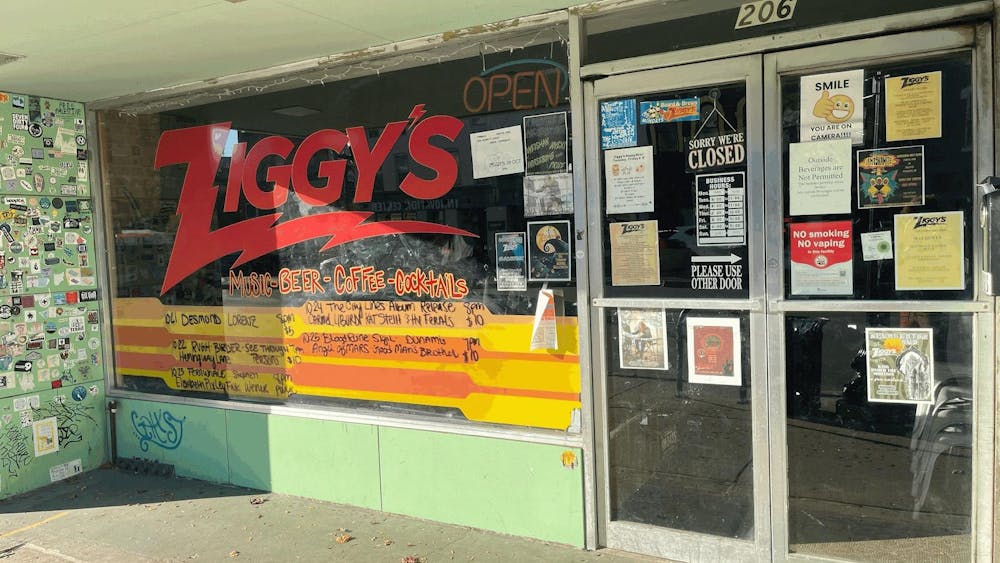Students filtered into the small room in the Eastern Michigan University Student Center last Thursday, to browse the posters on the wall and the displays of prayer clothing and other items.
As they settled into their seats, Imam Moataz Al’Halak, director of the Muslim Community Association of Ann Arbor, approached the podium. He began the Islam 101 event, hosted by the Muslim Student Association, at the beginning – by defining the word “Islam.”
“Islam is not just a name for a religion, unlike other religions ‘Islam’ has a meaning…that goes to the core of understanding Islam” Al’Halak began.
Islam, he went on to explain, meant surrender to God, but also more than that – it “has a broader meaning than many people think.” To believers, he explains, it also means peace.
A Muslim, then is someone who accepts this concept of Islam, Al’Halak continued.
He then discussed the history of Islam and its roots. “Muslims believe that all the prophets of god … they came with one basic message, to remind people of their duty to God,” he said.
“Muhammad is the brick finishing the palace,” Al’Halak said, that the other prophets are the foundations of the palace of religion. He expressed the view that all prophets are brothers, sharing “the same creed, the same values.”
Al’Halak then proceeded to break down the beliefs and practices of Islam, to explain it to the audience. The first thing he discussed are the 6 “pillars of faith” or Imam, which include belief in the “oneness of god,” angels, books, prophets, last day, divine decree. He also discussed how Muslims see God, as an all-knowing being who allows free will – he “knows the path you are going to take of your own choice,” he said.
“The beauty of Islam is you don’t need to me to approach God,” Al’Halak said. “every human being can have a direct link to God.”
He then discussed how belief is available to every human being, but they are gifted with the choice of belief, as a test in this life.
Continuing on this theme, he then described the fundamental practices for Islam. The five practices he then described were the “declaration of belief,” where the believer would affirm their belief in Allah, the daily prayers, the month of fasting in Ramadan, the giving of alms, and a once-a-lifetime pilgrimage to Mecca.
Of these, he discussed the prayer, alms, or zakat, and the pilgrimage, or hajj, more in depth.
“Prayer is not a burden, its an empowering tool,” he said. The prayers, he explained, are a way to directly contact God and find peace in everyday life to Muslims.
He also described the importance of giving alms. A Muslim who has money is expected to give 2.5 percent of their wealth to the poor. “Whenever we see a poor person,” he explains of Muslims, “we see a rich person who didn’t do his duty.”
The hajj, which Al’Halak described as a “beautiful international convention,” is a pilgrimage to the Islamic holy city of Mecca, expected of those who are able to make the trip. The hajj “shows the universality if Islam.”
To sum up the belief system, “Islam is a commitment, a daily commitment,” he said, “you have to care, you cannot be indifferent.”
He also discussed the role of Islam in science, in response to a student’s question. Although a lot of people think “Islam is backward” it “encourages exploration” he said. And history backs up his claim. During the “Golden Age of Islam,” major discoveries were made in science. The foundations were laid for modern medicine with the discoveries of Avicenna and algebra was developed, in addition to the artistic and literary flowering of the period. Al’Halak also pointed to science in the Q’ran, such as descriptions of the fetus.
This event was scheduled as a continuation of the MSA “Islamophobia” event. As Omar Kibi, a junior Biology major and coordinator of this event, explained, it was focused on saying “Islam is this and this and this,” instead of the “Islamophobia” event’s format of disproving myths.
The MSA wanted to “give a basic idea of Islam, not what the media’s saying,” said Hiba Baghdadi, the treasurer of the MSA. The event served to educate students, so if they saw someone fasting or praying, they’d know why, she further explained. She cited a running joke amongst Muslim students of praying underneath the stairs in Halle, and the weird looks they sometimes get when the come out from praying there.
“I’m glad these people turned out,” Kibi said. In light of the turnout, he said. “We might have it again next semester.”
Katty Bidoul, a sophomore attendee of the event, said it expanded her understanding of Islam. “I’m very Christian, and I knew not much about Islam.”
She enjoyed “learning about the pillars of faith and practices, it really showed what the differences are and aren’t. It was a very straightforward message, not technical.









